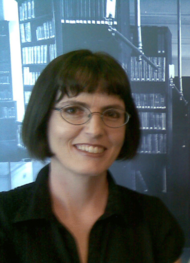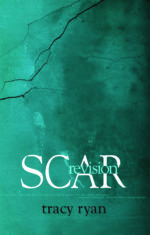Interview with a poet: Tracy Ryan

Editor of New Poets and award-winning author, Tracy Ryan, says new poets need to do three things: read poetry, practise detachment and refuse to be discouraged by rejection.
What have you most enjoyed about editing New Poets?
Being startled and impressed by these new and talented writers, whose work is already so assured and promises even more.
Each of the three is quite unique, distinctive, as readers will see.
I enjoyed working face-to-face with the writers too, getting some sense of the personalities that informed the writing, and being able to ask them about their work.
What did you gain from it?
Editing the three poets’ work, as well as reading through the wider submissions, gave me a stronger sense of what is out there among up-and-coming poets.
I also gained satisfaction from the feeling that these three writers are well on their way to a lasting and productive literary future. And the pleasure of seeing their collections come together: seeing something substantial take shape for all of them.
How is the process of editing a volume of poetry different from writing your own?
It’s entirely different, even if it draws on some of the same skills.
You are handling material that has nothing to do with your own life experience or imagination – you have to strike a balance between the essential respect for another writer’s vision and ideas, their way of using language and the objective sense of what works best for the reader.
When it’s your own book, you have to develop ways of becoming more objective. When it’s someone else’s, you really have to ‘hear’ them first, and only then bring in your own suggestions.
Would you recommend the process to other poets? Why?
Yes, though I think some people might enjoy editing more than others do – just as some like reading in public and some don’t! It’s partly a matter of temperament. I think it’s a good way to cultivate objectivity and to inform your judgement.
What strengths do you see in each of the poets in the collection?
Emma Rooksby has the power that comes with great poise and restraint, a gift for keen observation of detail.
Scott-Patrick Mitchell has verbal and conceptual energy, and a brilliant musicality – his work bowls you over, you won’t forget it.
And J.P. Quinton has a unique way of seeing and expressing things –sometimes witty, sometimes raw, always highly literate and striking.
Do you see any correlations between your published works and those within the collection?
Not in any obvious or conscious way. But I expect because we all have strong Western Australian connections there will be some shared themes or subjects. These poets are definitively themselves – that’s what made each of them such a standout.
In your opinion, how has poetry (and the poetry scene) changed in the last decade?
I guess increasing access to the internet and electronic technology in general has made the biggest difference.
People can put their work out there – they can also obtain information and connect with other poets more than was once possible. The good side of this is obvious. The bad side, I think, is that many writers need some aloneness and sense of retreat to focus on their writing, as well as to hone what they do before they make it public. But there is always going to be change.
What are you most looking forward to about Fremantle Poetry Month in July, during which New Poets will be released?
Most of all hearing the poets read from their new books, and seeing the public response. I’m also expecting the masterclass to bring out some good things.
You are running a masterclass for emerging poets at Fremantle Press in July: what advice would you give to someone wanting to improve, and perhaps publish their poetry?
Three things: (1) Read poetry – if you don’t read it, you are unlikely to write it well. (2) Practise detachment – if you are able to detach from what you have written, enough to scrap what isn’t working and enrich what is, that is a great advantage. (3) Don’t be discouraged by rejection.
Which poets do you look to when developing your own work?
I always go back to Emily Dickinson, Sylvia Plath quite often, Shakespeare, John Donne, Thomas Hardy … I have been influenced by Judith Wright and Dorothy Hewett, by Theodore Roethke, and in the realm of lyrics that are like poetry, the songs of Jacques Brel. Inevitably I turn to John Kinsella – we’ve been married a long time and we read most of each other’s poems as they are written.
Tell us about your most recent achievements.
I have a new book of my own poetry coming out with Fremantle Press next year – it’s called The Argument.
That book means a lot to me, as does the ongoing relationship with Fremantle Press. One poem from The Argument won the 2009 ABR Poetry Prize.
Tracy Ryan will be appearing at the launch of Fremantle Poetry Month, 8 July 2010. Her latest books Scar Revision and Sweet are available from Fremantle Press.



